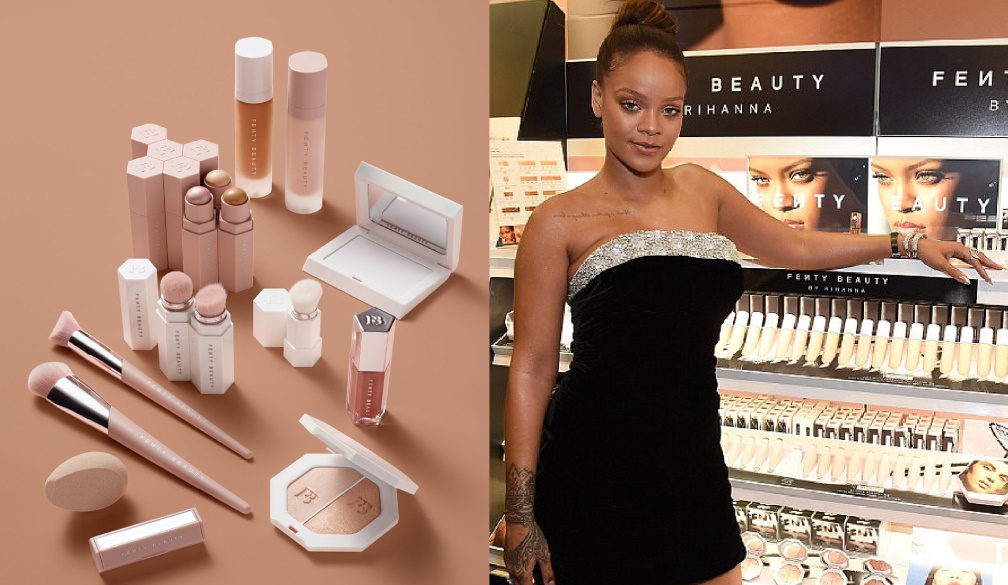The Rise of the Celebrity-Owned Brand: More Than Just a Pretty Face?
Introduction
In the dynamic world of consumerism, celebrity endorsements have long been a powerful marketing tool. However, a significant shift has occurred in recent years: celebrities are no longer content with simply lending their faces to existing brands. They are increasingly taking the entrepreneurial leap, creating and owning their own brands. From Rihanna’s Fenty Beauty to George Clooney’s Casamigos tequila, celebrity-owned brands are reshaping industries and capturing the attention (and wallets) of consumers worldwide. But what’s driving this trend, and is it just a fleeting fad or a sustainable business model?
The Allure of Celebrity Entrepreneurship
-
Control and Authenticity: One of the primary motivations for celebrities to launch their own brands is the desire for greater control. Instead of being a spokesperson for someone else’s vision, they can shape the brand’s identity, values, and product offerings to align with their personal beliefs and passions. This authenticity resonates with consumers who are increasingly skeptical of traditional advertising.
"I wanted to make a brand for women of all skin tones, of all attitudes, of all cultures. I wanted everyone to feel included," Rihanna has said about Fenty Beauty. This sentiment reflects a desire to create something genuine and representative.
- Financial Incentives: Let’s face it: Money matters. While endorsement deals can be lucrative, owning a brand offers the potential for far greater financial rewards. Celebrities can build equity, generate passive income, and even sell their brands for substantial profits down the line. The Casamigos tequila sale to Diageo for up to $1 billion is a prime example of the financial upside.
- Creative Expression: For many celebrities, entrepreneurship provides an outlet for creative expression beyond their primary profession. Whether it’s designing clothing, formulating skincare products, or curating home goods, owning a brand allows them to explore their interests and passions in a new and meaningful way.
- Direct Connection with Fans: Social media has revolutionized the way celebrities interact with their fans. Owning a brand allows them to foster a direct connection with their audience, solicit feedback, and build a community around their products. This level of engagement can create a strong sense of loyalty and drive sales.
Key Ingredients for Success
Not all celebrity-owned brands are created equal. While some achieve meteoric success, others fizzle out quickly. What are the factors that differentiate the winners from the losers?
- Authenticity and Alignment: The most successful celebrity-owned brands are those that feel authentic to the celebrity’s persona and values. Consumers can quickly spot a forced or disingenuous brand, which can damage both the brand’s reputation and the celebrity’s image.
- Quality Products: A celebrity’s name can attract initial attention, but ultimately, the quality of the products or services is what will keep customers coming back. Brands that prioritize quality and innovation are more likely to build a loyal following.
- Strong Branding and Marketing: A well-defined brand identity and a compelling marketing strategy are essential for success. This includes everything from the brand’s name and logo to its messaging and advertising campaigns.
- A Solid Business Foundation: Celebrities may be the face of the brand, but they need a strong team of experienced professionals to handle the day-to-day operations. This includes experts in product development, manufacturing, distribution, and finance.
- Targeted Marketing: Understanding the target audience and tailoring marketing efforts to reach them effectively is crucial. This may involve using social media, influencer marketing, or traditional advertising channels.
Examples of Successful Celebrity-Owned Brands
- Fenty Beauty (Rihanna): Fenty Beauty disrupted the beauty industry with its inclusive shade range and innovative products. The brand’s focus on diversity and representation resonated with consumers and helped it achieve rapid success.
- Casamigos Tequila (George Clooney): Casamigos, co-founded by George Clooney, Rande Gerber, and Mike Meldman, became a top-shelf tequila brand known for its smooth taste and celebrity cachet. Its acquisition by Diageo for up to $1 billion is a testament to its success.
- SKIMS (Kim Kardashian): SKIMS has revolutionized the shapewear and loungewear industries with its comfortable, inclusive, and stylish designs. The brand’s focus on body positivity and representation has resonated with consumers of all shapes and sizes.
- Draper James (Reese Witherspoon): Draper James embodies Reese Witherspoon’s Southern charm and style. The brand offers clothing, accessories, and home goods inspired by the actress’s Southern roots.
- Rare Beauty (Selena Gomez): Rare Beauty aims to challenge unrealistic beauty standards and promote self-acceptance. The brand donates a portion of its sales to mental health initiatives, aligning with Gomez’s advocacy work.
Challenges and Considerations
While celebrity-owned brands can be highly successful, they also face unique challenges:
- Risk of Overexposure: Celebrities who overextend themselves by endorsing too many brands can dilute their personal brand and lose credibility with consumers.
- Dependency on the Celebrity: The brand’s success may be heavily reliant on the celebrity’s continued popularity and positive image. Any scandal or controversy involving the celebrity can have a detrimental impact on the brand.
- Maintaining Authenticity: It can be difficult to maintain authenticity as the brand grows and becomes more commercialized. Celebrities need to stay true to their original vision and values to avoid alienating their fans.
- Competition: The celebrity-owned brand market is becoming increasingly crowded, making it more challenging to stand out and capture market share.
The Future of Celebrity-Owned Brands
The trend of celebrity-owned brands is likely to continue as more celebrities seek to leverage their fame and influence to build successful businesses. However, the landscape is becoming more competitive, and consumers are becoming more discerning. To succeed, celebrity-owned brands will need to prioritize authenticity, quality, and innovation.
Conclusion
Celebrity-owned brands represent a fascinating convergence of entertainment, entrepreneurship, and consumerism. When done right, these brands can be highly successful, offering celebrities greater control, financial rewards, and creative expression. However, success is not guaranteed. By understanding the key ingredients for success and addressing the challenges, celebrities can build enduring brands that resonate with consumers and leave a lasting legacy. As consumers become increasingly discerning, the authenticity and quality of the brand will be more important than ever. Only those who truly embody their brand’s values and deliver exceptional products will stand the test of time.

